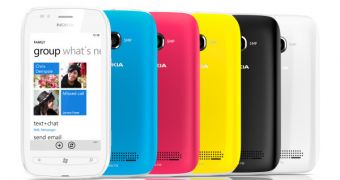Finnish mobile phone maker Nokia is expected to bring to the market more Windows Phone devices in the near future, and it seems that some of them will pack Qualcomm application processors, the same as the newly released Nokia Lumia 800 does.
Nokia did announce a new wave of handsets powered by Microsoft's mobile OS for the near future, though the company did not offer specific info on what these handsets might pack in terms of hardware.
However, Enrico Salvatori, president of Qualcomm CDMA technologies in Europe, said in a recent interview with Tech Radar that there will be more Nokia phones powered by the company's chips.
When asked whether we'll see more powerful Windows Phones from Nokia launched soon, such as handsets packing dual-core chips, he did not excluded the possibility.
“We are working on a roadmap [with Nokia] and not a single device, a single launch. It's an important collaboration for Qualcomm, so we are very excited about working together,” Salvatori explains,
“It's been very effective in terms of time to market because we developed the phone together. It's been a very successful development.”
He also underlined the fact that Nokia and Qualcomm have had a great collaboration, and that they managed to achieve a lot in only six months since Nokia's migration to Windows Phone started.
Qualcomm's chips are present inside all Windows Phones on the market today, and also power the MeeGo-based Nokia N9 smartphone, which made the fast development of Nokia Lumia 800 and Lumia 710 possible.
“The Nokia collaboration is also very much about the Windows Phone ecosystem and, of course, we at Qualcomm, as you know, are supporting on our platform the Windows Phone software and actually at the moment we are the only supplier supporting the integrated solution,” he said.
No specific info on what to expect from next devices has been offered, but we should not be too surprised if dual-core enabled Windows Phones emerge in the near future, since Nvidia already announced plans to support the OS on its Tegra chips, and Qualcomm might not wish to miss the train either.

 14 DAY TRIAL //
14 DAY TRIAL //